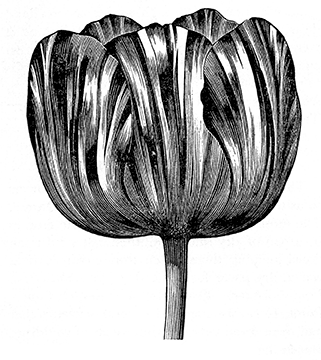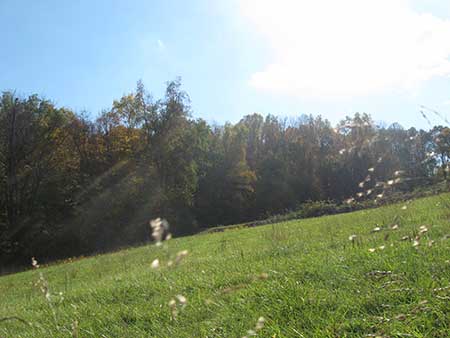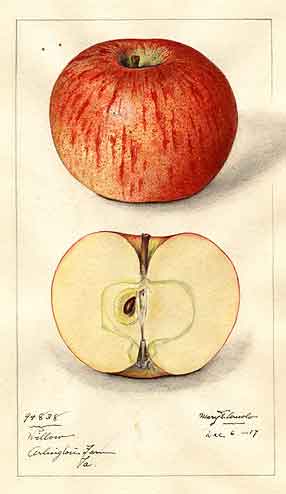
Love divinations were a very prominent obsession with young women in old Europe because a woman’s fortune or misfortune was tied in with the man she would marry. Every young woman wanted to marry a man who would not only love her, but would also be able to provide for her and their future family.
Dream divinations were very common and required some act before going to bed to trigger a prophetic dream. Other divinations required fire or plants. Still others required basic scrying skills where the maiden would have to divine the initials or occupation of her husband to be.
Not all of these young ladies were looking for husbands. Quite a few were looking for a new lover. Yes, even when Christianity had such a strong hold over the population, there were plenty of young women and young men who bucked the religious taboos and took on lovers long before they were married.

Wood Stack Character Divination
Young women, seeking to discover what character a man of interest possessed would go out to the wood stack at night and pull out the first stick the hand touched. As Barnaby Googe writes:
“Which if it streight and even be, and have no knots at all,
A gentle husband then they thinke shall surely to them fall;
But if it fowle and crooked be, and knottie here and there,
A crabbed, churlish husband then they earnestly do feare.”
Apple Peel Husband Divination
There are many old divinations involving apples and the finding of true love. A popular scrying divination involves reading letters found in discarded apple peels. First, the apple is peeled in one continuous piece. The young woman then flings the peel over her left shoulder. If the peel breaks when it falls, she will not marry any time soon, but if the peel remains in one piece then it will form the first letter of her future husband’s (or lover’s) last name.

Apple Seed Marriage Divination
This divination was supposed to be done on the night of Saint Thomas, but it can be done anytime when apples are in season. To discover who she would marry, a young woman would cut an apple in half and count the apple seeds. An even number of seeds meant she would marry soon. An odd number of seeds meant she would not marry this year. If she happened to cut a seed in half, it meant she would get married, but would become a widow soon after.
Choosing the Best Man Apple Seed Divination
This was another popular apple seed divination for young women to discover their true match. First, she would gather as many apple seeds as there are men to choose from. She then held up each seed and named it after one of the men. She tossed it into a fire and observed what it did. If the seed burst, the man was bursting with love for her. If the seed made no sound, the man was not interested in her and it meant any attempts to lure him to her would quickly fizzle out.

Christmas Season Husband Divination
During the Christmas season, it was common for young women to take several onions and name each one after a young man of interest. The onions would then be placed near the warm chimney and the first to sprout would be the young woman’s husband.
In Barnaby Googe’s translation of Naogeorgus, this divination custom is described as:
“In these same dayes yong, wanton gyrles that meete for marriage bee,
Doe search to know the names of them that shall their husbands bee.
Foure, onyons, five, or eight, they take, and make in every one
Such names as they do fansie most and best do thinke upon.
Thus neere the chimney them they set, and that same onyon than,
That first doth sproute, doth surely beare the name of their good man.”
Occupation Divination
In some parts of Europe, Christmas Eve was the best time for divination spells. This particular divination was performed by young women who wanted to know what occupation their husbands would have. Melted lead was drizzled into a bowl of cold water. The young women gazed into the bowl and found images of the trade their husbands would have. A modern day adaptation of this divination pours wax from a burning candle into a bowl of cold water.
Halloween Night Nut Burning
On Halloween night there was nut burning. Two nuts, each given the name of a person (a potential couple), were placed on a grate over an outdoor fire. Attention was paid as to how the nuts burned. If one nut burned bright, that meant the person was true. If a nut would crackle and jump, it foretold of unfaithfulness. In a poem by Charles Graydon (Poems, 1801), the writer states:
“These glowing nuts are emblems true
Of what in human life we view.
The ill-matched couple fret and fume,
And thus in strife themselves consume,
Or from each other wildly start,
And with a noise forever part,
But see the happy, happy pair,
Of genuine love and truth sincere:
With natural fondness while they burn,
Still to each other kindly turn,
And as the vital sparks decay,
Together gently sink away,
Their mingled ashes rest at last.”
Fasting For Dreams
On the Day of Saint Agnes, January 21st, single young women would fast all day long and at night they believed they would dream of future lovers or a husband:
“And on sweet St. Agnes’ night
Please you with the promised sight,
Some of husbands, some of lovers,
Which an empty dream discovers.”
Sources:
Curiosities of Popular Customs by William S. Walsh (1897).
Observations On Popular Antiquities by John Brand (1900).

